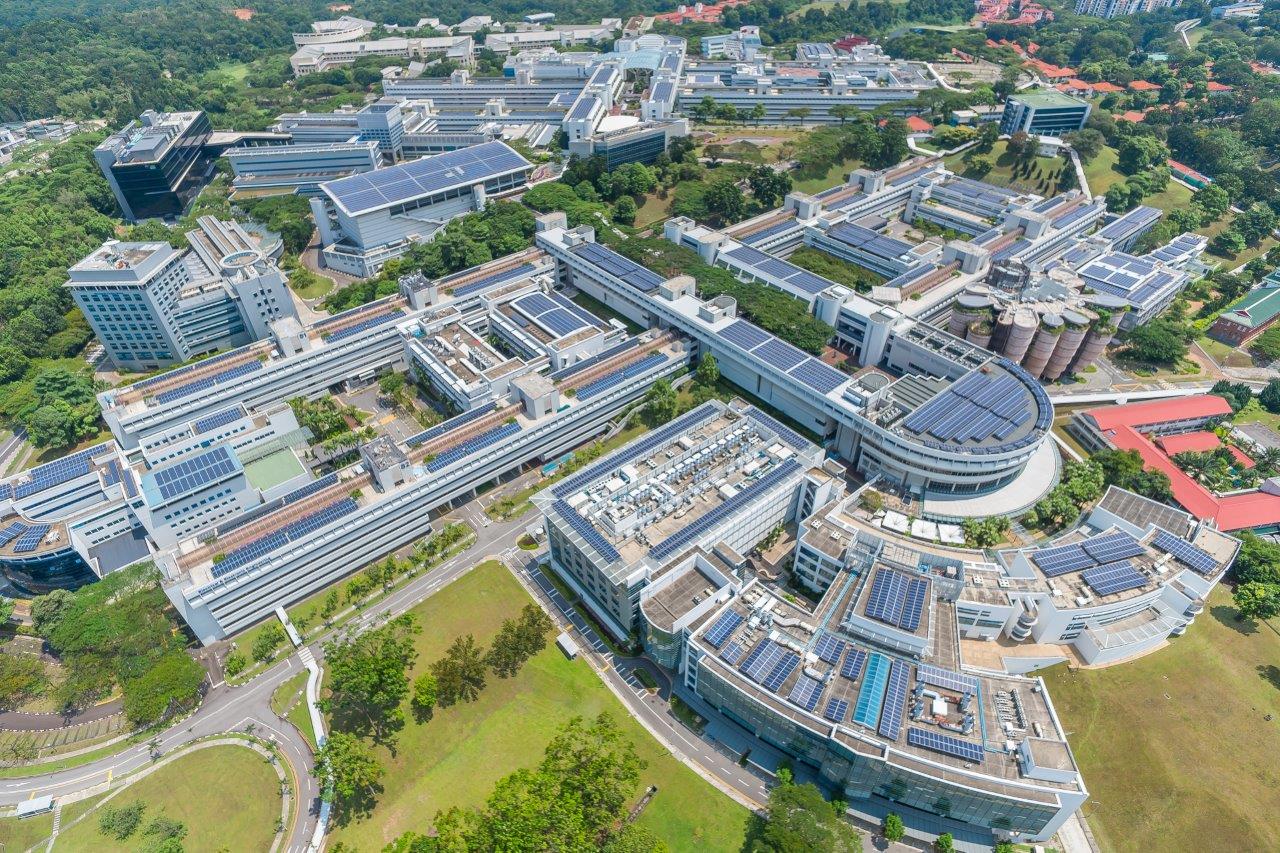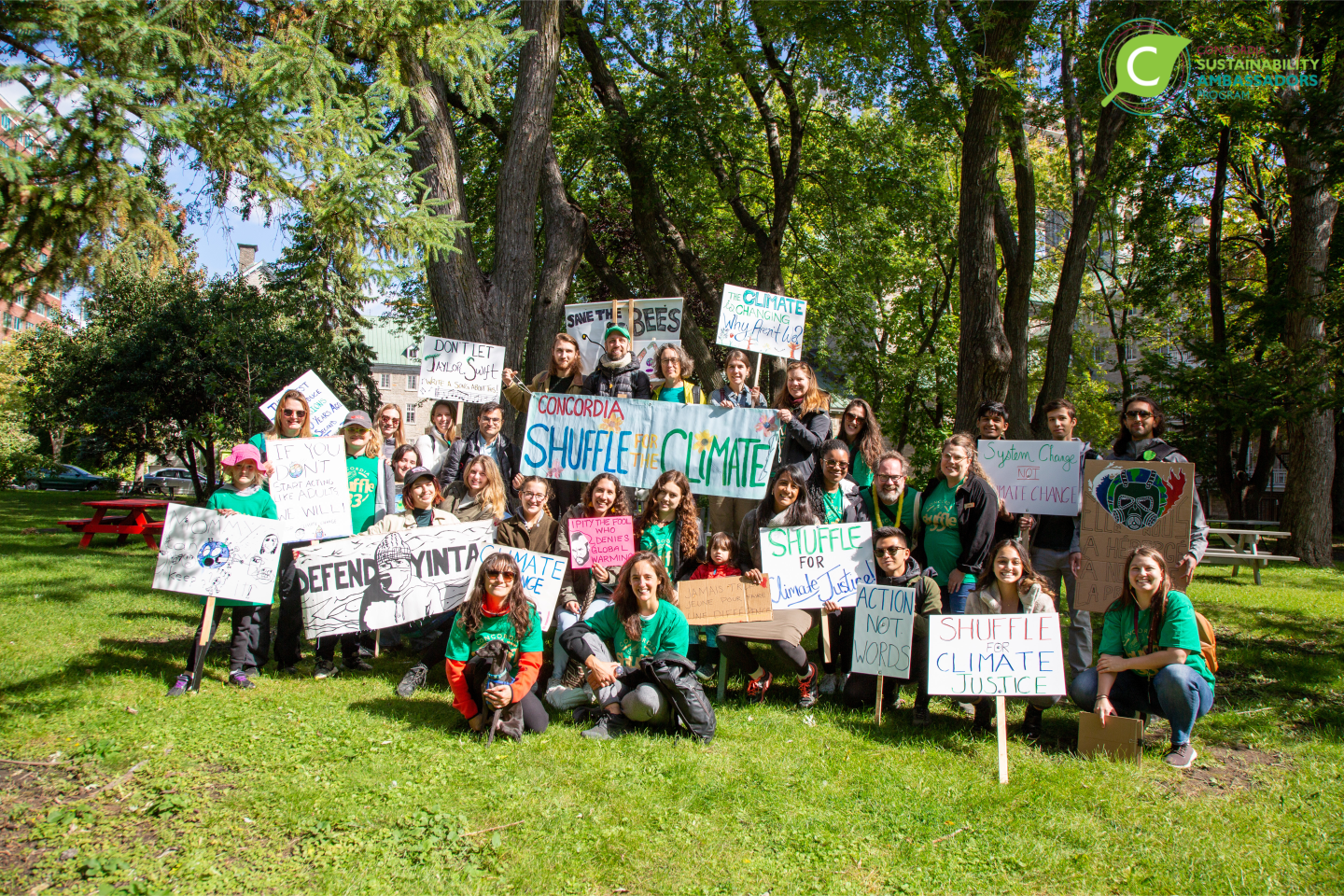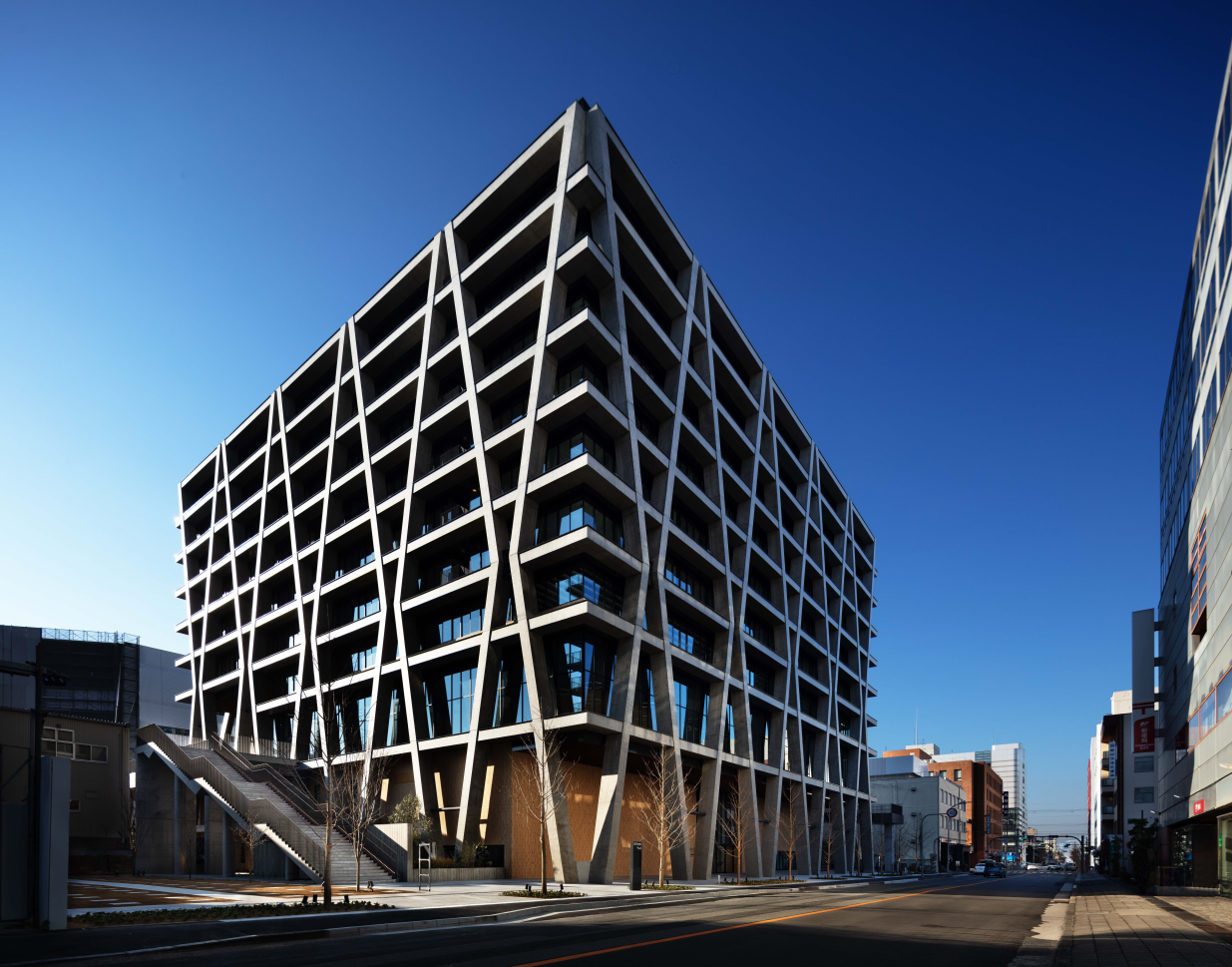2023 Award Winner: Nanyang Technological University
NTU’s Whole Systems Approach to Sustainable Campus Infrastructure
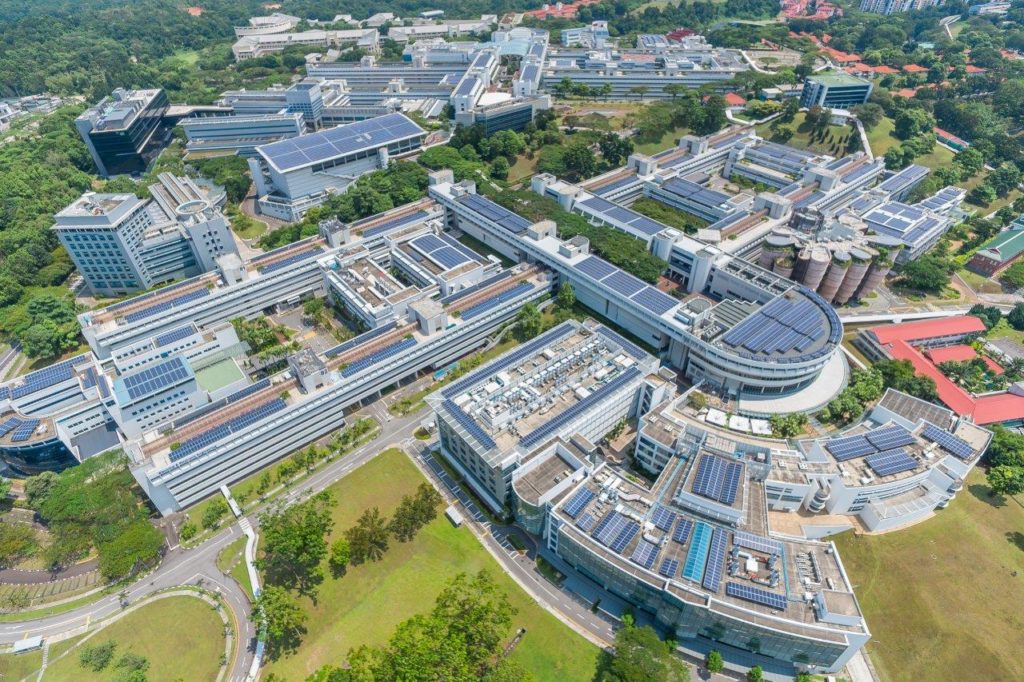
In recent years, the importance of sustainability has become increasingly evident, and universities around the world have started to take action to reduce their carbon footprint. Nanyang Technological University (NTU) in Singapore has demonstrated a remarkable commitment to sustainability through its innovative and ambitious construction projects. The university has pioneered the use of Mass Engineered Timber (MET) as a sustainable building material, producing two of Asia’s largest MET buildings, both of which have received widespread recognition for their environmentally friendly design.
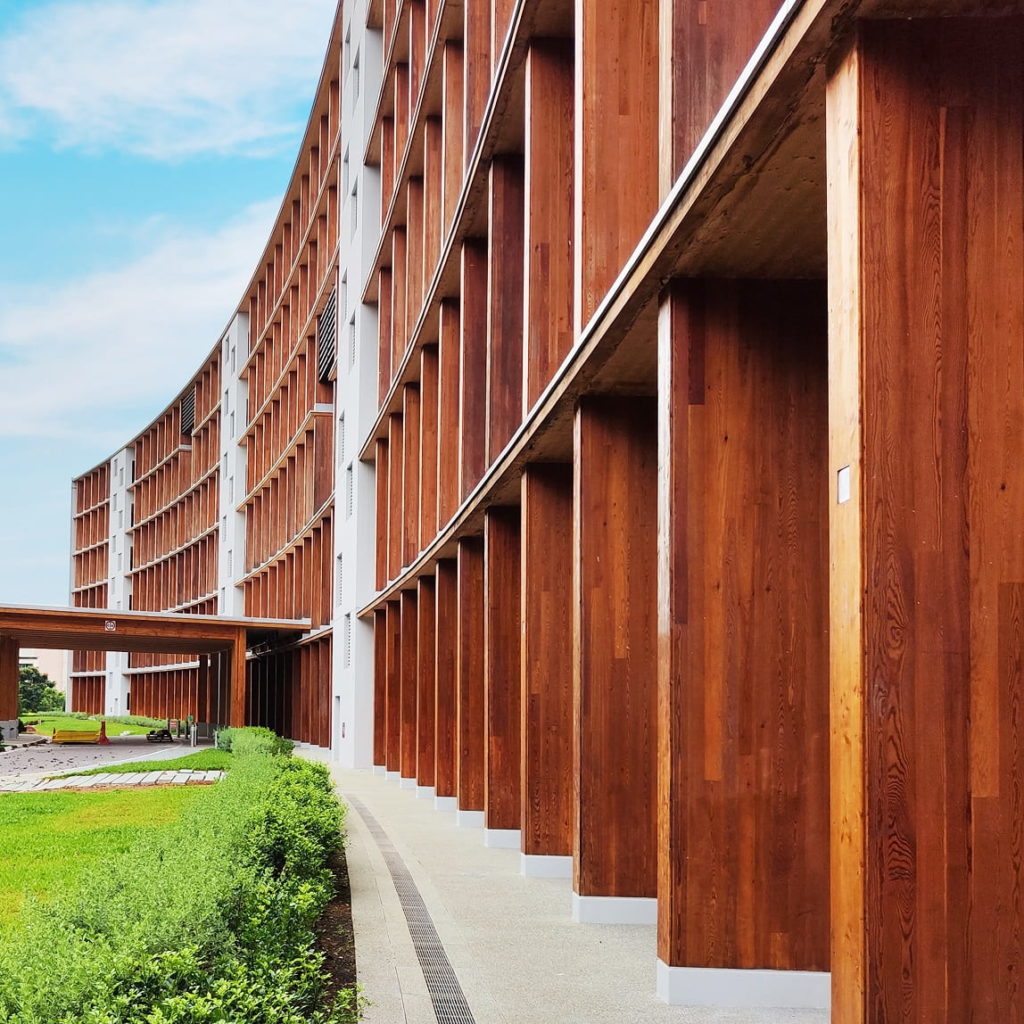 The Academic Building South (ABS) is the most recent addition to NTU’s sustainable infrastructure, which is now Asia’s largest MET building, and the most ambitious sustainable construction project undertaken by NTU to date. The ABS, built in 2022, is a six-story, 40,000 square-meter facility that provides an innovative learning space for over 4,500 students. The building features 25 smart classrooms equipped with energy-efficient features, offering world-class spaces for flexible and collaborative learning. The building also utilizes Passive Displacement Ventilation (PDV) technology, which offers superior cooling efficiency that eliminates the need for traditional cooling fans and reduces energy consumption.
The Academic Building South (ABS) is the most recent addition to NTU’s sustainable infrastructure, which is now Asia’s largest MET building, and the most ambitious sustainable construction project undertaken by NTU to date. The ABS, built in 2022, is a six-story, 40,000 square-meter facility that provides an innovative learning space for over 4,500 students. The building features 25 smart classrooms equipped with energy-efficient features, offering world-class spaces for flexible and collaborative learning. The building also utilizes Passive Displacement Ventilation (PDV) technology, which offers superior cooling efficiency that eliminates the need for traditional cooling fans and reduces energy consumption.
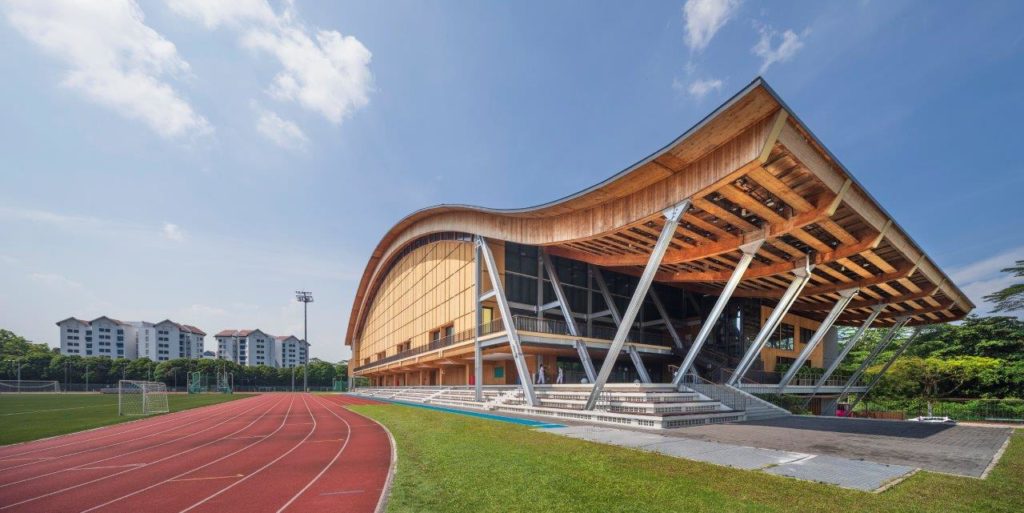 The construction of the ABS was inspired by NTU’s first MET building known was The Wave. The Wave is a three-story high sports hall that became the first large-scale building made of MET in Southeast Asia when it was constructed back in 2017. The hall’s wave-like roof, which spans 72 meters, houses three full-sized basketball courts without any internal columns. The building’s design offers superior heat insulation, and its PDV technology provides a highly efficient cooling system that not only saves energy, but also eliminates wind draft from conventional cooling fans, making it an excellent ground for sports such as badminton.
The construction of the ABS was inspired by NTU’s first MET building known was The Wave. The Wave is a three-story high sports hall that became the first large-scale building made of MET in Southeast Asia when it was constructed back in 2017. The hall’s wave-like roof, which spans 72 meters, houses three full-sized basketball courts without any internal columns. The building’s design offers superior heat insulation, and its PDV technology provides a highly efficient cooling system that not only saves energy, but also eliminates wind draft from conventional cooling fans, making it an excellent ground for sports such as badminton.
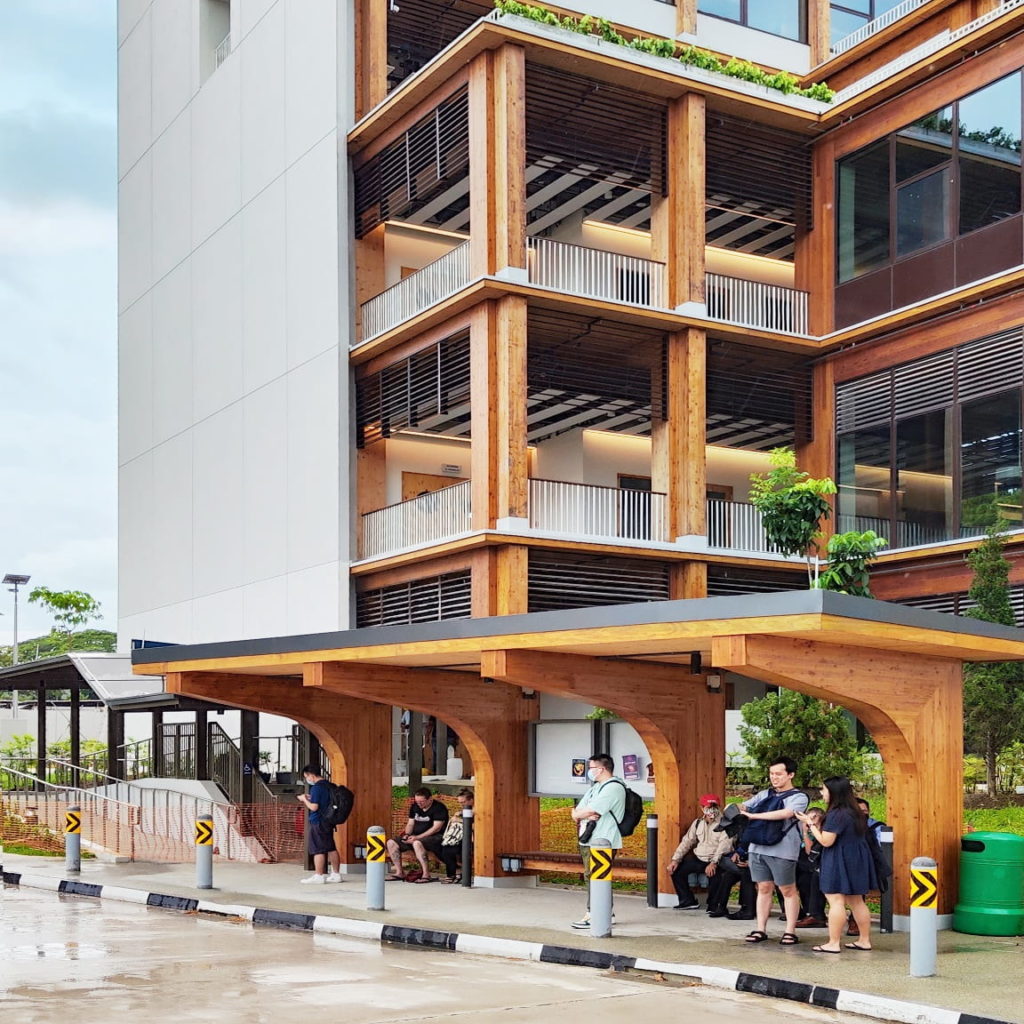 NTU’s sustainable construction projects have had a significant impact on the university’s whole-institution sustainability efforts. In fact, 97% of the buildings in NTU are “Green Mark” certified (equivalent to LEED), and the university has reduced its energy consumption by 30% from its 2011 baseline. NTU has demonstrated an unwavering commitment to sustainability, as evidenced by its bold Sustainability Manifesto that details the university’s sustainability targets and steps towards the goal of achieving carbon neutrality by 2035.
NTU’s sustainable construction projects have had a significant impact on the university’s whole-institution sustainability efforts. In fact, 97% of the buildings in NTU are “Green Mark” certified (equivalent to LEED), and the university has reduced its energy consumption by 30% from its 2011 baseline. NTU has demonstrated an unwavering commitment to sustainability, as evidenced by its bold Sustainability Manifesto that details the university’s sustainability targets and steps towards the goal of achieving carbon neutrality by 2035.
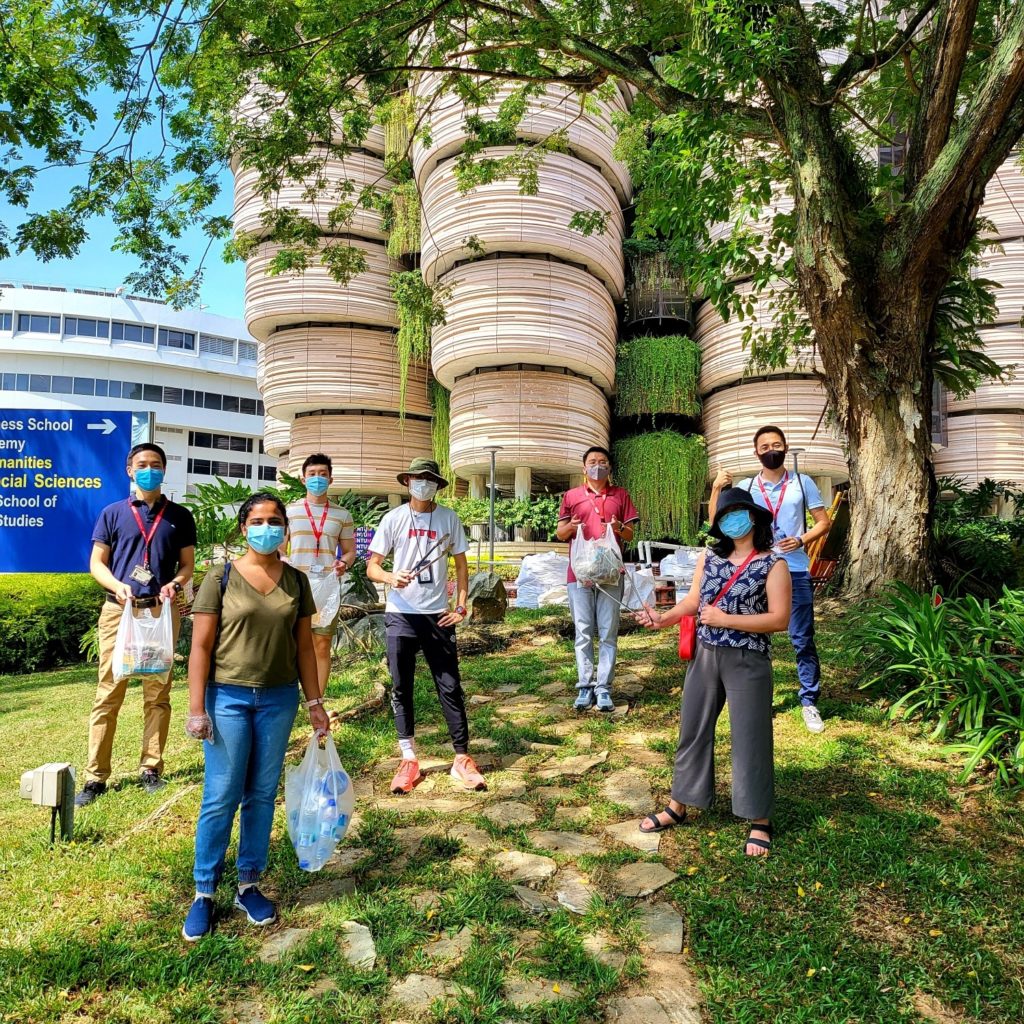
Next Category: Partnerships for Progress
2023 Award Winner: Concordia University
Concordia University’s Cultural Change for a Sustainable Campus Community

Given the complexity of the climate crisis, the need for youth leadership and a shift towards a community approach to overcome sustainability challenges has become increasingly evident. Concordia University in Canada has demonstrated a notable commitment to sustainability through its Sustainability Ambassadors Program (SAP) that promotes sustainability and drives positive change on campus through student engagement and leadership.

The SAP is an innovative and immersive eight-month program that offers students a unique opportunity to develop their sustainability leadership skills while actively supporting sustainability initiatives on campus. In collaboration with the Office of Sustainability and various key actors within the university, the program provides students with interdisciplinary leadership training and experiential learning opportunities to design and implement projects that inspire sustainable action among their peers. Sustainability Ambassadors are encouraged to collaborate with existing campus groups, ensuring that their projects take a multi-stakeholder, holistic, and interdisciplinary approach that incorporates both oral and institutional memory to implement solutions.
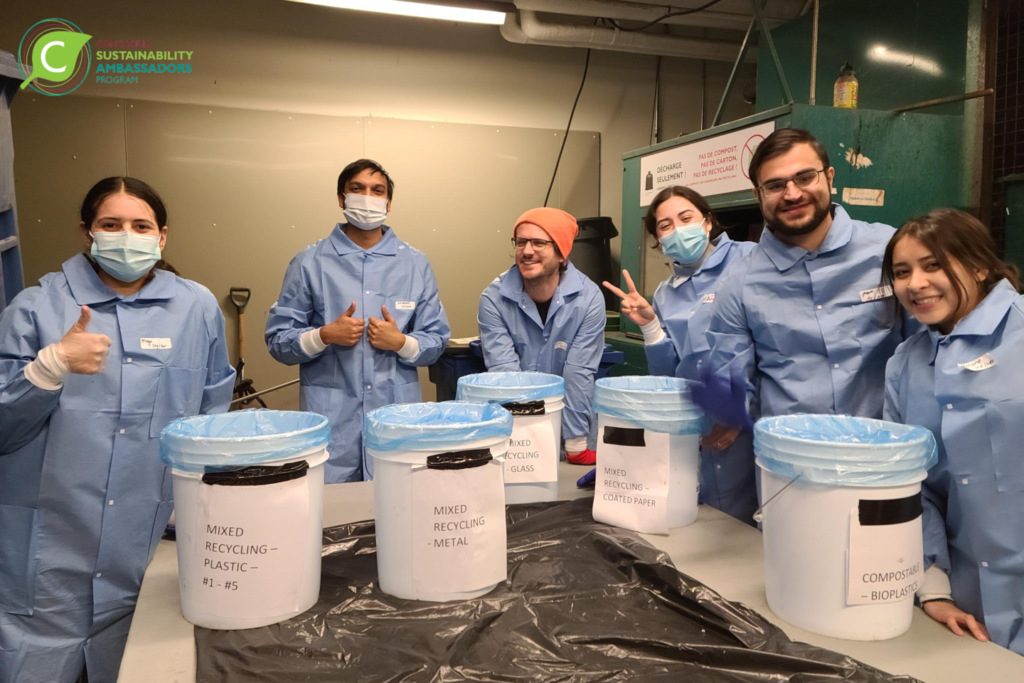
The program accepts students from all degree types, areas of study, course load statuses, and credit completion levels, ensuring that a diverse group of individuals with a shared passion for sustainability can contribute to the program's success. By focusing on empathy and compassionate communication, the SAP fosters autonomous leadership in sustainable advocacy, preparing students to respond actively to the pressing climate crisis.
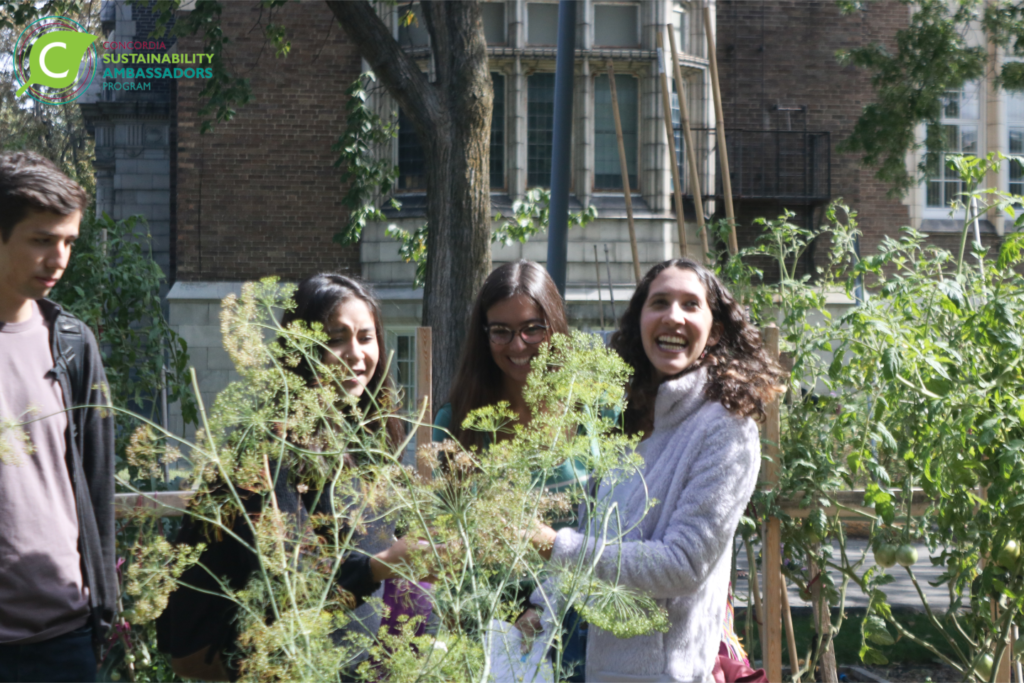
Through the program, students volunteer weekly within existing campus initiatives, working with organizations such as the center for creative reuse, the Hospitality department's Fairtrade initiatives, a precious plastics project for recycling plastic, a campus-community bike shop, and campus gardens. Last academic year, Sustainability Ambassadors contributed a remarkable 1,090 hours of volunteering, dedicating their time to learning and educating others about sustainability and supporting these initiatives. This year, volunteer hours are projected to reach an impressive 2,380 hours, highlighting the program's increasing impact.
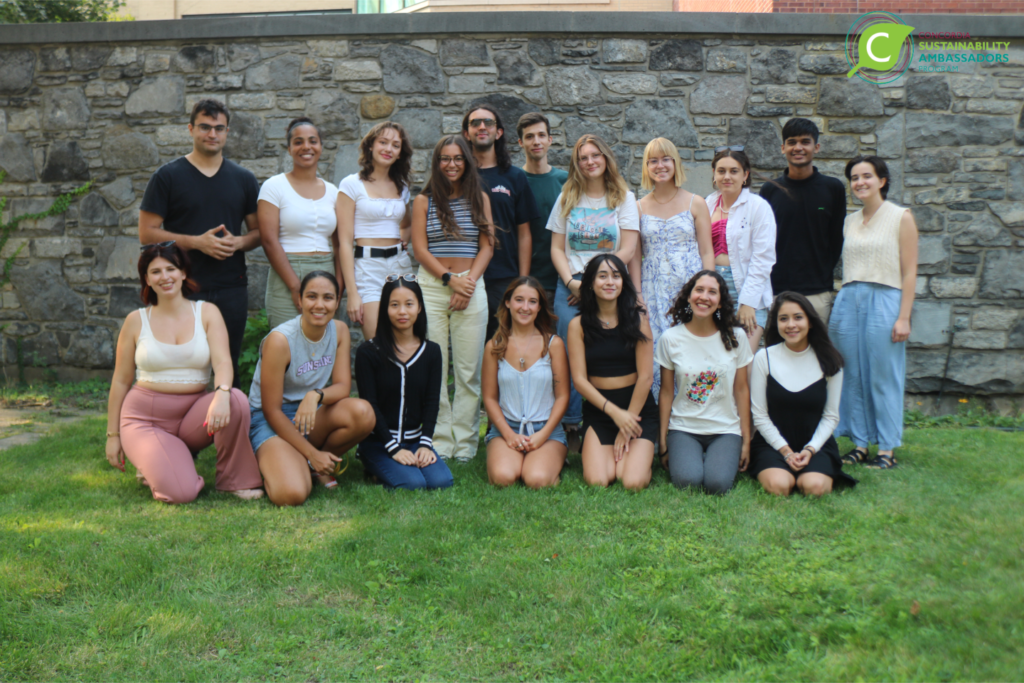
The success of the Sustainability Ambassadors Program lies in its strong engagement with stakeholders and the campus community. The program continually collaborates with campus experts, building relationships across various groups and initiatives to collectively approach sustainability concerns. Partnerships with key campus groups, Concordia units, and student fee-levy groups ensure an integrative approach to understanding and solving sustainability issues. These partnerships provide students with networking opportunities and demonstrate how holistic solutions can be achieved through collaboration.
Next category: Honorary Member
2023 Award Winner: Osaka University
Osaka University’s Partnership Towards a Shared, Sustainable Campus
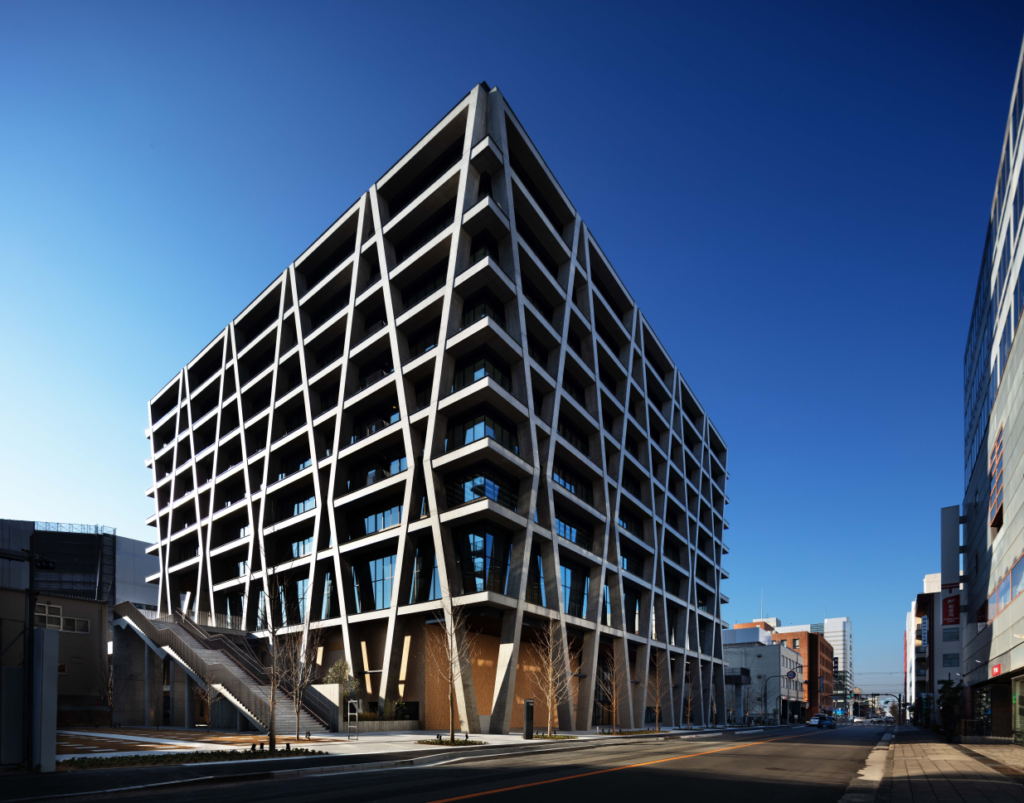
As climate impacts continue to be felt around the world, the need for multidisciplinary collaboration is becoming increasingly evident. Osaka University in Japan has demonstrated a observable commitment to sustainability through its community involvement and innovative collaboration model that led to the completion of the Minoh Campus Relocation Project. The university followed a unique partnership with local governments, private companies, landowners, and local residents that resulted in the development of a highly sustainable and shared campus. The project involved relocating the university’s Minoh Campus from the suburbs and building a new campus in front of a subway station that included a research and lecture building, and a dormitory by Osaka University, as well as a municipal library, a lifelong learning facility, a hall, and a plaza connecting the campus by Minoh City.
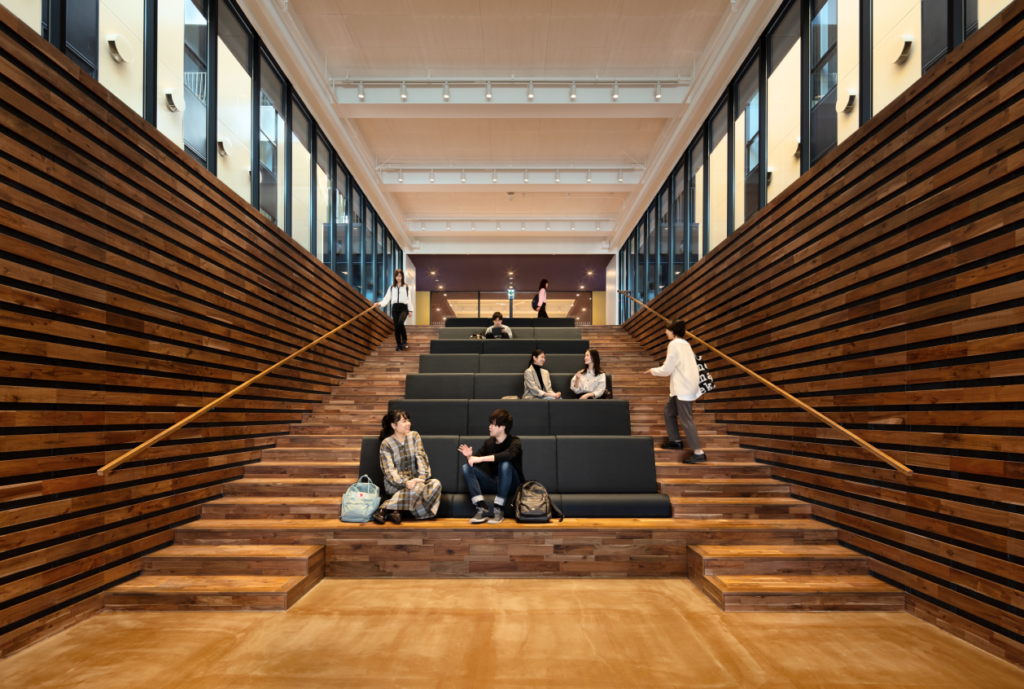 The new Minoh Campus has been awarded a Gold certification for LEED in neighborhood development (LEED-ND), making it the first LEED-ND certified campus in Japan. The campus is highly rated in the categories of “Smart Location and Linkage” and “Neighborhood Pattern and Design”, and the research and lecture buildings have also received the Gold certification for LEED in new construction (LEED-NC).
The new Minoh Campus has been awarded a Gold certification for LEED in neighborhood development (LEED-ND), making it the first LEED-ND certified campus in Japan. The campus is highly rated in the categories of “Smart Location and Linkage” and “Neighborhood Pattern and Design”, and the research and lecture buildings have also received the Gold certification for LEED in new construction (LEED-NC).
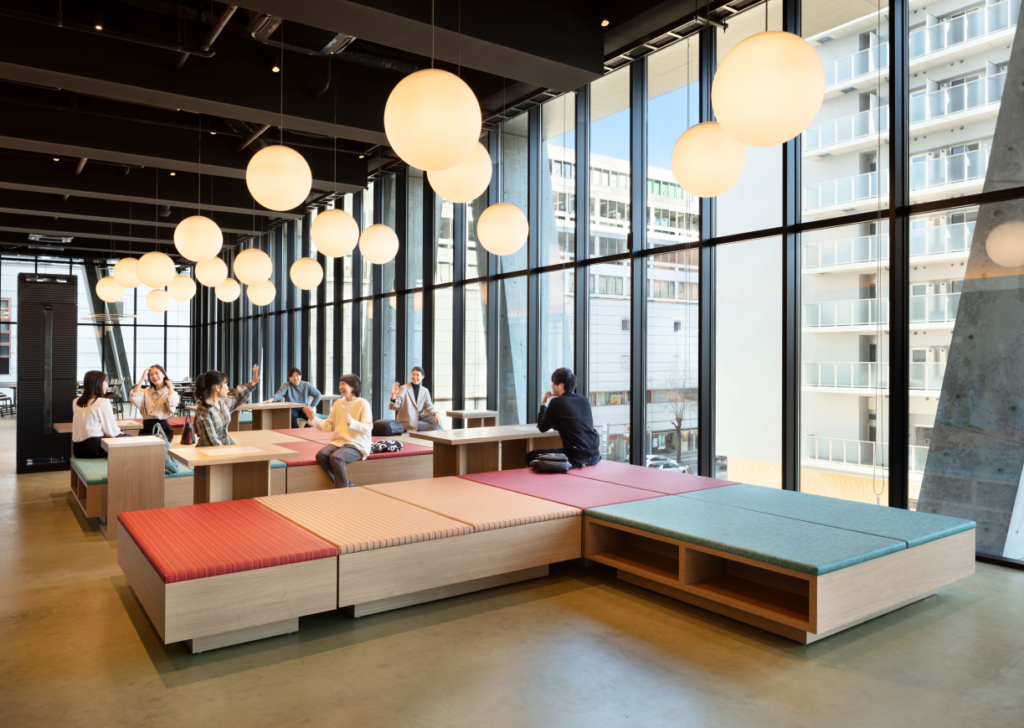 The shared municipal library and lifelong learning facilities have reduced the amount of resources needed to operate the campus. In fact, the total energy consumption of the new campus is 48% lower than that of the old campus. The project also involved the installation of cutting-edge air conditioning equipment, building energy management systems, and implementing various sensors that make the campus a “living laboratory” demonstration site for energy efficiency studies.
The shared municipal library and lifelong learning facilities have reduced the amount of resources needed to operate the campus. In fact, the total energy consumption of the new campus is 48% lower than that of the old campus. The project also involved the installation of cutting-edge air conditioning equipment, building energy management systems, and implementing various sensors that make the campus a “living laboratory” demonstration site for energy efficiency studies.
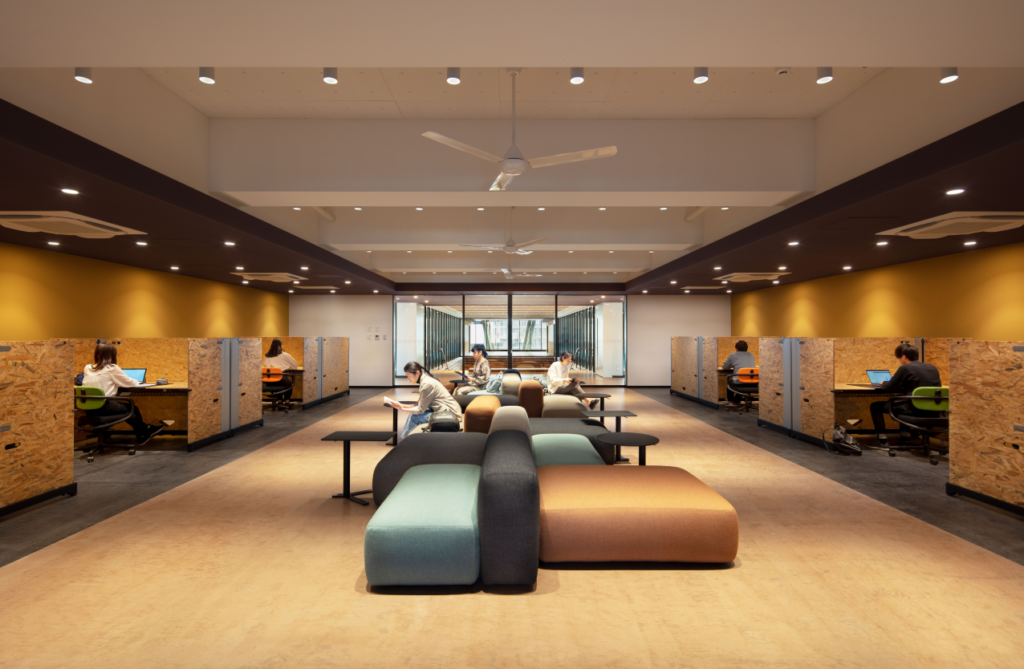 The project resulted in a synergistic effect between academia, culture, and arts, with shared facilities reducing the amount of resources and energy used by the community. The shared nature of the facilities also strengthened project based learning (PBL) classes for students that includes the participation from local residents dealing with specific problems related to the city.
The project resulted in a synergistic effect between academia, culture, and arts, with shared facilities reducing the amount of resources and energy used by the community. The shared nature of the facilities also strengthened project based learning (PBL) classes for students that includes the participation from local residents dealing with specific problems related to the city.
 The Minoh Campus Relocation Project engaged members of the campus community, as well as external partners and stakeholders, such as Minoh City, Osaka Semba Fashion Co-operative Association (OSFCA, Landowner), Daikin Industries, and the Minoh Semba Town-planning Council that enhanced the dialogue and understanding of major issues in the area, as well as increased the engagement of local residents.
The Minoh Campus Relocation Project engaged members of the campus community, as well as external partners and stakeholders, such as Minoh City, Osaka Semba Fashion Co-operative Association (OSFCA, Landowner), Daikin Industries, and the Minoh Semba Town-planning Council that enhanced the dialogue and understanding of major issues in the area, as well as increased the engagement of local residents.
Next category: Cultural Change for Sustainability
2023 Award Winner: VinUniversity
Congratulations to VinUniversity for winning the 2023 Honorary Member Award!
VinUniversity’s Innovative and Equitable Approach to Healthcare
The VinUni-Illinois Smart Health Initiative is a collaborative project between VinUniversity (VinUni) in Vietnam and the University of Illinois Urbana-Champaign (UIUC) in the United States. This groundbreaking initiative aims to address major challenges in global public health and make progress towards sustainable development goals. It focuses on developing and providing widely accessible health monitoring and improvement technologies for people all over the world.
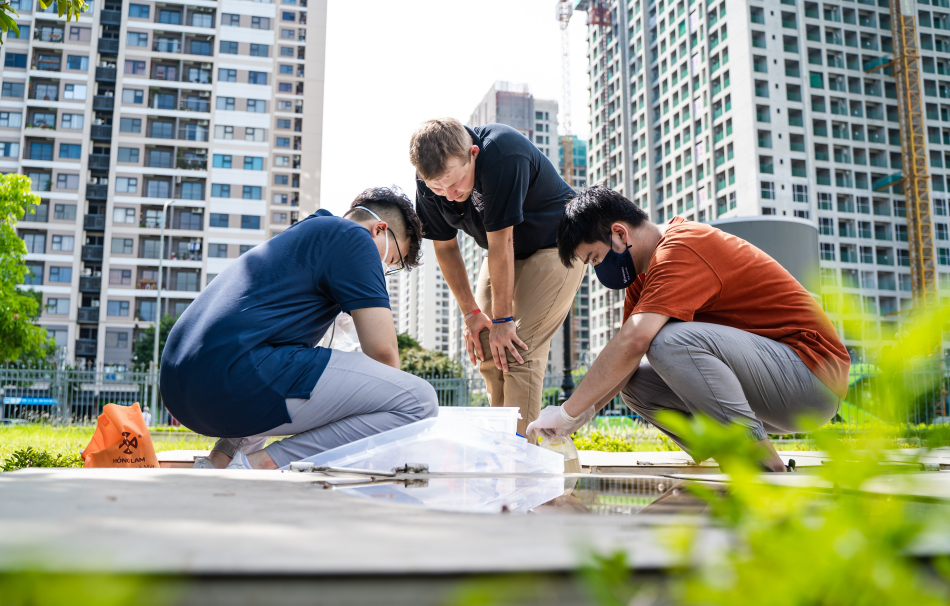
The initiative has provided funding for ten collaborative research projects involving faculty from both VinUni and UIUC. These projects conduct high-impact research on biomedical sensing, informatics, and their applications in smart healthcare. Since 2021, a total of 13.5 million USD has been invested in biosensing and digital health technologies to ensure that everyone, regardless of their income level or geographic location, has access to the latest healthcare technologies, particularly for early detection and prevention.
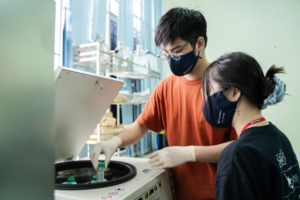
The initiative has developed low-cost innovative health technologies, improved public healthcare systems, and built sustainable interdisciplinary research collaborations between VinUni and other international partners. It has funded selected projects focusing on smart healthcare and biomedical research, trained postgraduate and undergraduate scholars, published numerous papers, created patents, and facilitated technology transfers that serve millions of people worldwide.
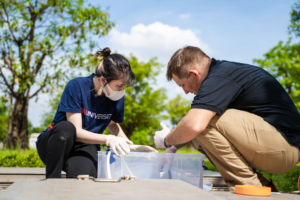
Engagement of stakeholders and the community has been a central aspect of the initiative. With more than 25 faculty members from VinUni and UIUC, as well as 50 research students, the project has attracted talented individuals who are dedicated to developing state-of-the-art sensing and digital technologies for accessible health monitoring. The initiative provides research funding and resources, international exchange and training experiences, and aims to build a better world for everyone.
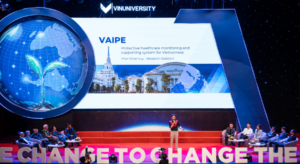
The VinUni-Illinois Smart Health Initiative is driven by a unique innovative approach that provides project with great scalable potential. The initiative focuses on developing low-cost, high-technology smart healthcare solutions that can be accessible at scale, providing smart monitoring, screening, and diagnostics for millions of people worldwide. Its unique vision addresses the most challenging burdens in public health and sustainable development. The initiative's technology, such as VAIPE, has already reached millions of users in Vietnam, demonstrating its potential for broader impact at regional, national, and international levels.
Next category: Whole Systems Approach
